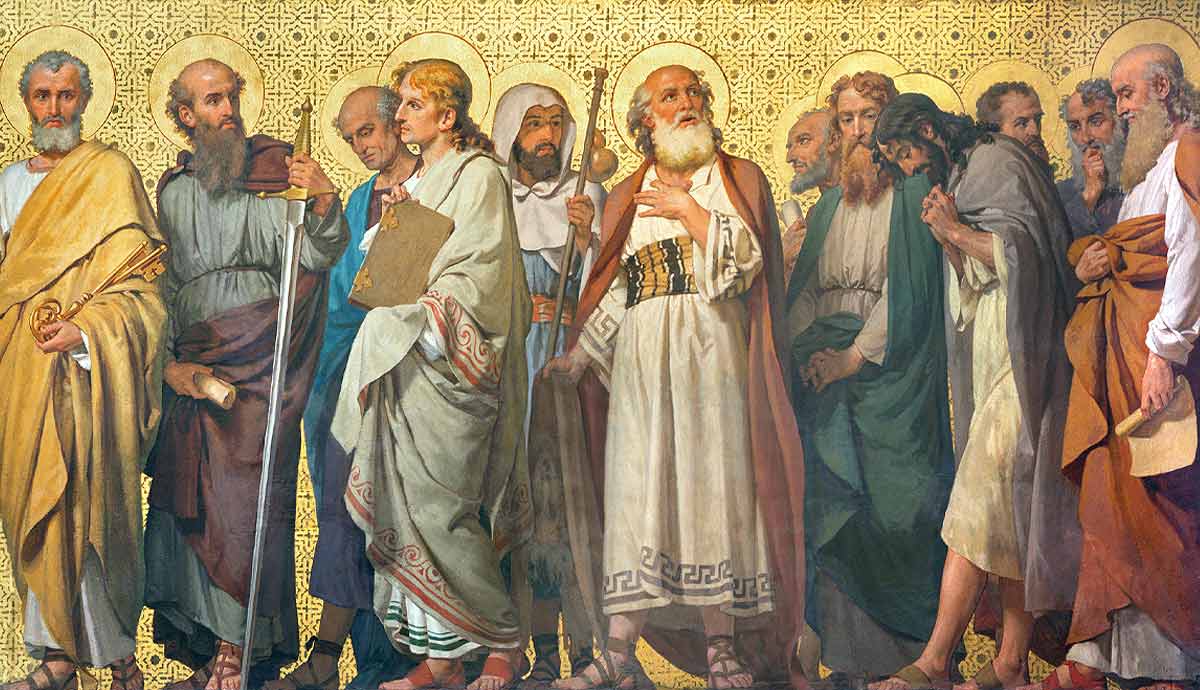
By the time the Roman Emperor Theodosius issued the Edict of Thessalonica in 380 CE, Christianity had evolved from a small, persecuted sect of Judaism into the dominant religion of the Roman Empire. For over 300 years Christians had gone through imprisonment, slander, and martyrdom throughout the Empire to rise to the primary religion against what looked like overwhelming resistance. So how did it get there?
Christians Were Commanded to Spread the Gospel

One of the major Christian beliefs is to follow what is commonly known as the Great Commission. Jesus Christ commanded in the Gospel of Matthew 28:16-20:
“And Jesus came and said to them, ‘All authority in heaven and on earth has been given to me. 19 Go therefore and make disciples of all nations, baptizing them in the name of the Father and of the Son and of the Holy Spirit, 20 teaching them to observe all that I have commanded you. And behold, I am with you always, to the end of the age.’”
What resulted, according to Christian tradition, is that the 12 apostles dispersed out of Jerusalem throughout parts of the Roman Empire preaching and teaching the Gospel. Many died hundreds of miles from their homeland of Israel.
Christianity Was Decentralized

The congregations that the apostles and their followers founded were spread throughout the Roman Empire, resulting in a decentralized religion with no main authority, unlike Judaism which was based in Jerusalem with a high priest. Even though much early Christianity eventually looked to the Bishop of Rome as the main leader, he was not the sole authoritative figure for the whole of Christianity, and the majority of Christians were not located in a single area. Christian tradition also holds that Christians were somehow warned ahead of time regarding the siege of Jerusalem and the destruction of the temple there in 70 CE. The Christians in Jerusalem escaped to the city of Pella across the Jordan River, and thereby survived the massacre of the citizens of Jerusalem.
The Religion Was Not Confined to an Ethnic nor Class Group

Unlike Judaism, which tended to be restricted to the Hebrews as an ethnic group (though one could come into the religion), Christianity went out beyond Judaism in its early years. The Apostle Paul went out of Jerusalem and visited and founded churches all around the Roman Empire, including Thessalonica, Rome, Galatia, and other places. The Apostle Thomas may have gone as far as India, and other Apostles founded churches in many other lands. The deacon Philip is recorded in the book of Acts as explaining a portion of the Old Testament to an Ethiopian eunuch.
Christianity is also recorded in Acts and in some of the Epistles as having been accepted among various classes of people. The Epistle of Philemon was written by Paul to a wealthy Christian individual named Philemon to receive back his slave Onesimus. Paul often gave instructions to wealthier members of churches on behavior and practices.
Copies of the Scriptures Were Widely Distributed

1st Century Christian writings appear to have been generally available, repeatedly copied, and well distributed throughout the Roman Empire. Judaism is a religion that prized and promoted literacy, and Christianity grew out of that religious tradition. Writings of Apostles and other teachers were read to local congregations and copied and distributed over and over, usually with care and precision to the point that critical review of the distribution of Biblical texts has shown minimal differentiation from copy to copy, particularly on major theological matters.
By the 300s, even though being a Christian had been illegal at times through the centuries, it was impossible for the Roman Empire to eradicate Christianity because of its widespread nature and acceptance among many varied classes and ethnic groups. The distribution of Christian material and dispersal of the religion throughout the Roman Empire was far too extensive for any real attempt to suppress its growth.










